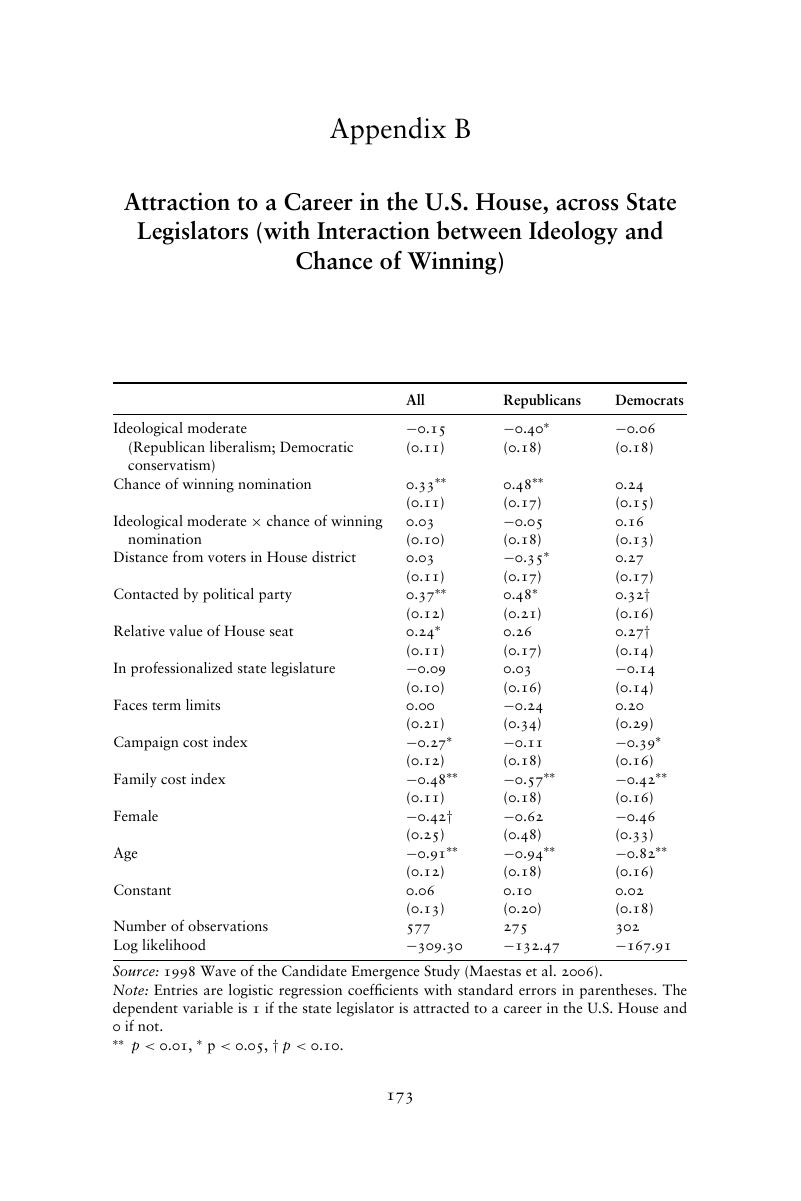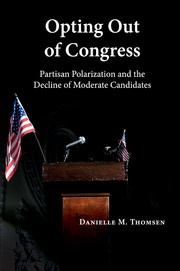Book contents
- Opting Out of Congress
- Opting Out of Congress
- Copyright page
- Contents
- Figures
- Tables
- Acknowledgments
- Introduction
- 1 The Choices Have Changed
- 2 Party Fit and the Calculus of Candidacy
- 3 Ideology, Attitudes, and Political Ambition
- 4 Ideological Moderates Won't Run for Congress
- 5 Where the Action Is
- 6 Ideological Moderates Won't Stay in Congress
- 7 The Growing Partisan Gap in Women's Representation
- 8 Toward a Less Polarized Congress?
- Book part
- Appendix A Interviews with Political Elites
- Appendix B Attraction to a Career in the U.S. House, across State Legislators (with Interaction between Ideology and Chance of Winning)
- Appendix C Determinants of Running for the U.S. House across State Legislators, by Party (2000–2010)
- References
- Index
Appendix B - Attraction to a Career in the U.S. House, across State Legislators (with Interaction between Ideology and Chance of Winning)
Published online by Cambridge University Press: 19 May 2017
- Opting Out of Congress
- Opting Out of Congress
- Copyright page
- Contents
- Figures
- Tables
- Acknowledgments
- Introduction
- 1 The Choices Have Changed
- 2 Party Fit and the Calculus of Candidacy
- 3 Ideology, Attitudes, and Political Ambition
- 4 Ideological Moderates Won't Run for Congress
- 5 Where the Action Is
- 6 Ideological Moderates Won't Stay in Congress
- 7 The Growing Partisan Gap in Women's Representation
- 8 Toward a Less Polarized Congress?
- Book part
- Appendix A Interviews with Political Elites
- Appendix B Attraction to a Career in the U.S. House, across State Legislators (with Interaction between Ideology and Chance of Winning)
- Appendix C Determinants of Running for the U.S. House across State Legislators, by Party (2000–2010)
- References
- Index
Summary

- Type
- Chapter
- Information
- Opting Out of CongressPartisan Polarization and the Decline of Moderate Candidates, pp. 173Publisher: Cambridge University PressPrint publication year: 2017

